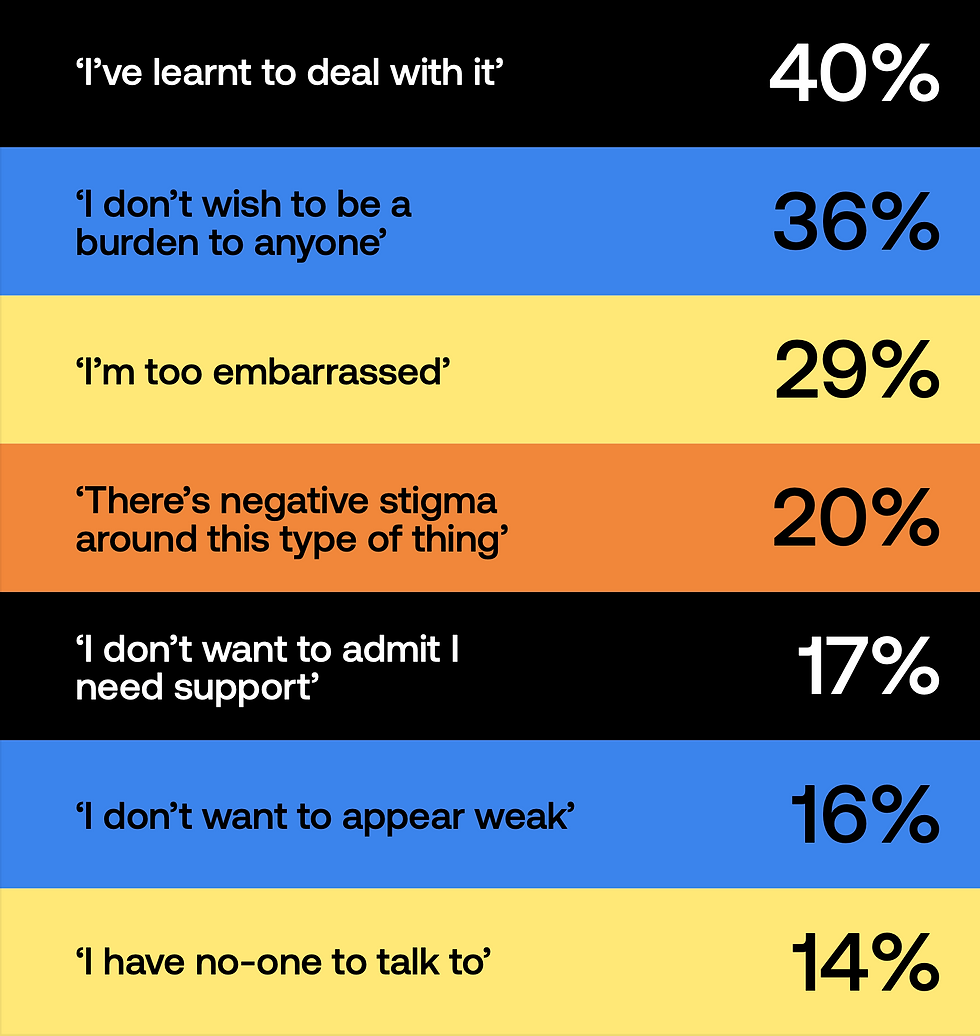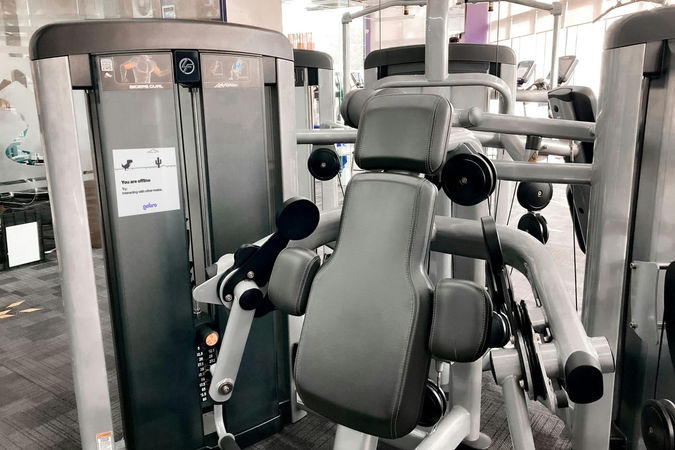GoBro!
A lifestyle-integrated wellbeing service that encourages men to be proactive in self-awareness and companionship seeking
Client / Philips – Global Student Service Design Challenge
Project year / 2025
Origin / London
Project type / Collective – Service Design
Role / Researcher, Visualisation
Contact me to request the full report.

Go Bro! is a gamified wellbeing service that prompts UK working class men to connect with their mates regularly through physical activities. The aim of the service is to reward men for taking time out to do self care, i.e. sports and social entertainment, and normalise mutual support, i.e. check-ins, among men. Hence, building a self-sustaining and community-led service.

✴ The Current Landscape
Expanding Men's Self-Confidence Horizon
In response to this brief, we conducted a six-month research project to better understand the needs and behaviours of our target audience.
According to the UK government’s national wellbeing survey, men report lower levels of life satisfaction than women. They are also significantly less likely to access psychological therapy, with only 36% of NHS talking therapy referrals made for men. Barriers include cultural norms, stigma, discrimination, socio-economic disadvantage, and traditional views of masculinity. As a result, many men turn to alcohol or drugs as coping mechanisms.
Although the UK market is flooded with wellbeing products—from therapy apps to stress-relief patches and supplements—many of these do not appeal to men. These products often fail to resonate due to ingrained social norms that discourage men from engaging in self-care.
Our interviews highlighted that men frequently suppress their needs and hide their vulnerability. This behaviour reinforces unhealthy expectations placed on men. According to the Priory Group (2023), four in ten men in the UK do not talk about their mental health with friends, family, or medical professionals. Redefining “confidence” among men must begin with self-care, including creating safe spaces, normalising rest, and making it easier to seek support.

✴ The Challenge
The abundance of wellbeing apps and services has created a paradox of choice, making it harder for men to navigate and engage with what is available. Many products feel indistinguishable and overwhelming. In London, although a range of charities provide mental health support, each tends to address a specific need, which makes it difficult for men to identify the right support at the right time.
Another key issue is that many men are reluctant to engage with these services unless prompted meaningfully and in a way that feels relevant to them.
To address these challenges, we explored how men define "self-care" through a series of research and co-discovery sessions. This helped us understand where a new kind of service might begin to support men more effectively and meaningfully.


Needs Statements from Men
In co-design workshops, we explored what might add value to men’s routines beyond what traditional self-care options already offer, such as gyms, sports clubs, and social groups. These conversations led to the development of six design principles that guided our design direction in the next phase.

Men and women are bought up differently, their emotional skill sets are different. To encourage open conversation, we need to develop their emotional skill sets.

The activity is healing for me. I like how silly artefacts can be useful too but we always sadly discard the first silly thought. They might work too! We just need to test it.

The note sheet template is good for us to jot down notes about important things about our friends that could be easily forgotten after the conversation. I can always trace back what we have talked about.

Having something to write or do when listening helps me take defensiveness off my mind. I started to recall the ability of active listening that I have once lost.
Research Question and Six Design Principles
Through the Discover Phase, we identified three key objectives, all of which are closely connected:
1. To promote healthy masculinity
2. To encourage self-care behaviour
3. To integrate physicality and mentality into everyday routine


✴ Solution
Expand Confidence in Accepting Vulnerability by Active Companionship
Rounds of research have shown men typically express self-care through sports and rest. However, both can be difficult to prioritise due to financial constraints and packed schedules. What motivates men to return to self-care is the opportunity to get active with others. With like-minded companions, men find joy in movement and experience true rest by being themselves.
To ensure the service fits seamlessly into their lives, we chose to integrate data from apps that men already use. These include platforms for recording physical activity such as Strava, Apple Health, Google Fit, and Samsung Health, as well as geolocation data from Instagram or Google Maps.
The app is designed to encourage goal-setting and participation without encouraging direct competition. Instead, users are invited to complete challenges together with a mate, focusing on shared achievement rather than comparison.
Recognising that men have different social needs, the service allows users to choose how they connect with others. Some may prefer to expand their network, while others might feel more comfortable sticking with familiar friends or engaging anonymously. Go Bro! accommodates this range of preferences, creating space for different types of social connection.






